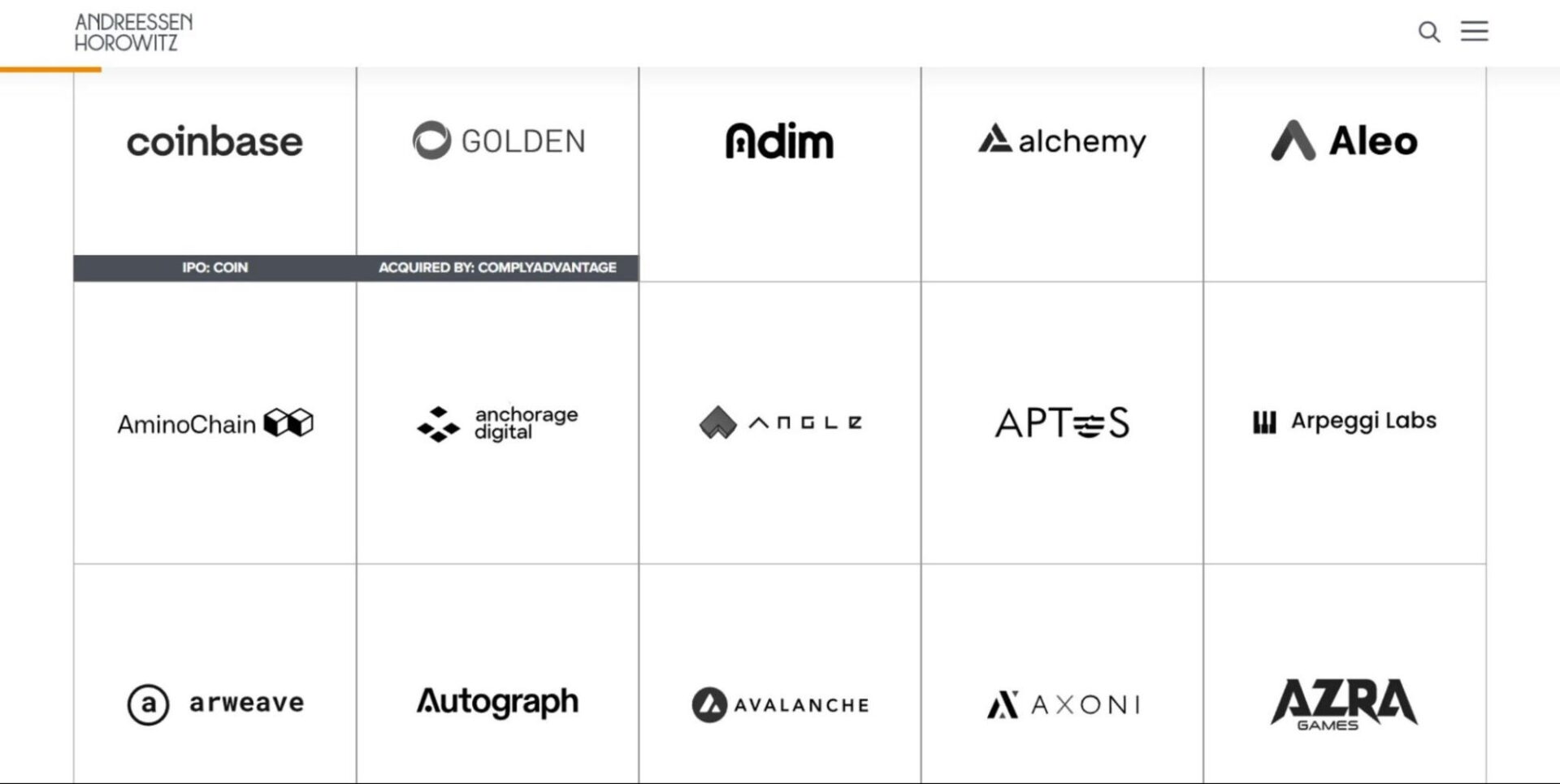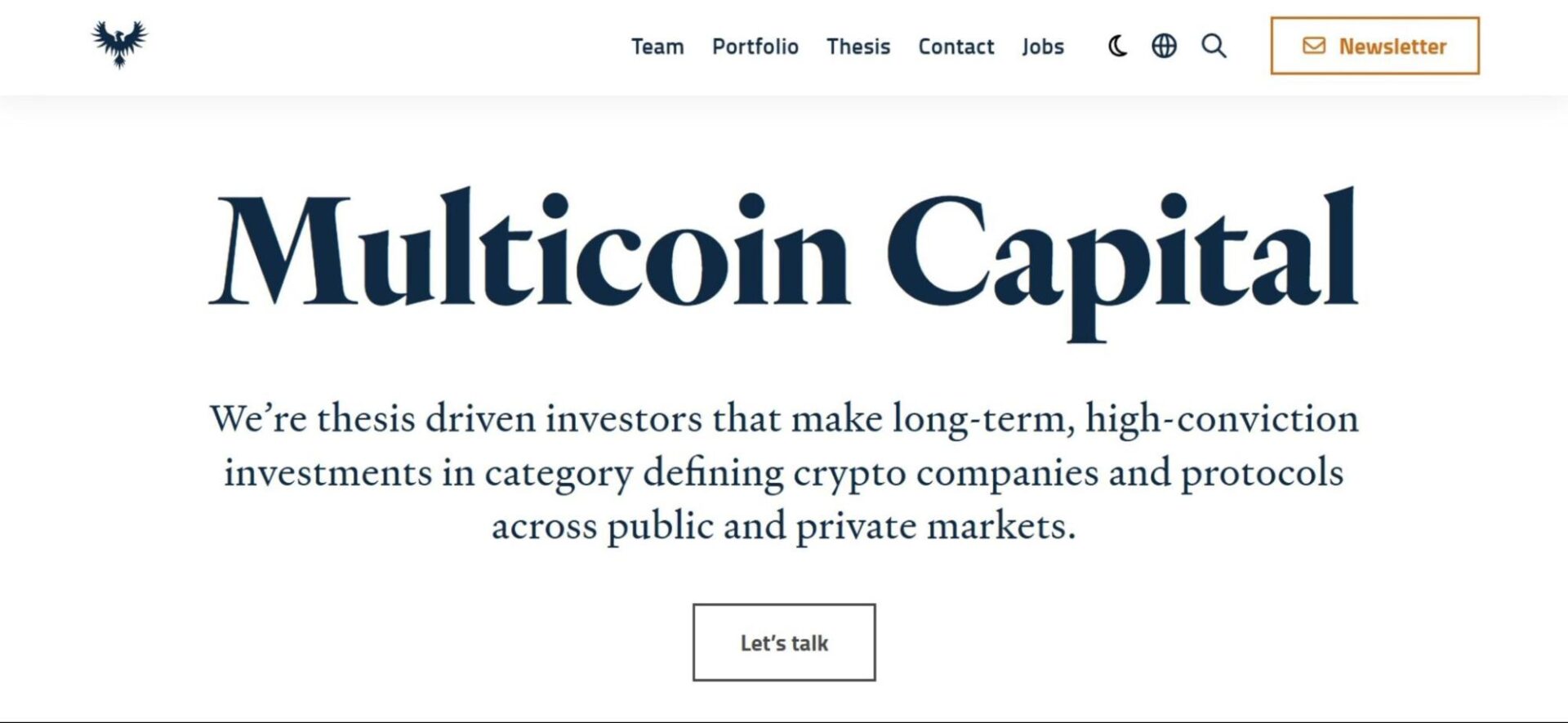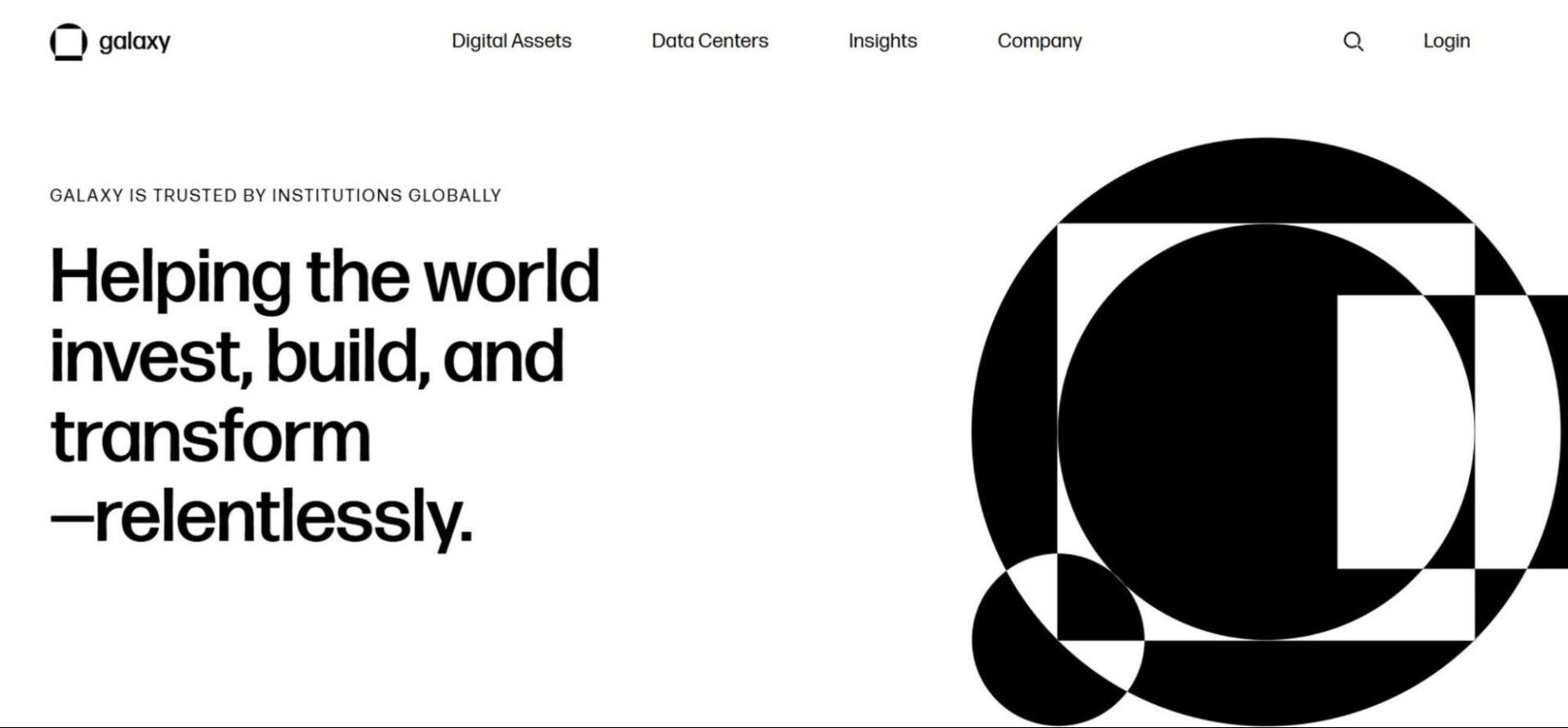What Is a Crypto Hedge Fund? Your Guide to Top Funds in 2025

A crypto hedge fund is an investment firm that pools capital from multiple investors, including individual and institutional investors, combines the funds, and invests them in various digital assets.
For investors, the benefits of crypto hedge funds are the potential for high returns, 24/7 access to the crypto market, a diversified investment portfolio, and early access to promising blockchain projects and tokens. Additionally, investors get access to professional management under fund managers with expertise in the crypto market and risk management.
To help you understand more about the crypto world, this article highlights what crypto hedge funds are, the best features of crypto hedge funds, their pros and cons, and a list of the top crypto hedge funds to watch in 2025. Let’s get started!
What Are Crypto Hedge Funds?
Crypto hedge funds are investment funds that primarily focus on trading cryptocurrencies and investing in digital assets to generate substantial profits for their investors. They pool capital from various investors to strategically manage portfolios of cryptocurrencies, crypto derivatives, futures contracts, and sometimes venture capital or private equity investments in blockchain companies.
Unlike traditional hedge funds, which invest in stocks, bonds, and commodities, crypto hedge funds primarily target digital assets and blockchain ventures. Since crypto hedge funds are relatively new compared to traditional securities investment, some firms operate hybrid funds, combining crypto assets with traditional financial instruments.
Participation in crypto hedge funds is usually limited to high-net-worth individuals with higher investment thresholds. These investors typically have a high risk tolerance and can afford substantial management fees. For this reason, interested individuals and institutions need to meet specific investment requirements, which the hedge fund determines.
What Does Hedge Fund Mean in Crypto?
A hedge fund in crypto is a professionally managed investment fund that pools capital from investors to invest in digital assets like Bitcoin, Ethereum, and other cryptocurrencies. Unlike individual crypto traders managing personal portfolios, these funds are led by experienced managers using advanced strategies to maximize returns.
These strategies include long/short positions, arbitrage, algorithmic trading, yield farming, and leveraged trading. With these investment strategies, crypto hedge funds aim to generate substantial returns regardless of whether the market is going up or down, employing risk management techniques to protect investor capital.
Crypto hedge funds are typically open only to accredited or institutional investors due to the high-risk nature of their assets and strategies. These funds charge a management fee and a performance-based fee, meaning the hedge fund managers earn a percentage of their profits.
What are the Best Features of Crypto Hedge Funds?
The best features of crypto hedge funds are expert decision-making, flexible investment strategies, strong risk controls, and easy access to a wider market.
- Expert Decision-Making: Crypto hedge funds are run by professionals who spend their time studying the market and making informed decisions. These managers watch price patterns, news updates, and global events, then take action to protect or grow investors’ money.
- Flexible Investment Strategies: One of the greatest strengths of a crypto hedge fund is its ability to use different methods. Instead of following only one style, the fund can mix long trades, short positions, arbitrage opportunities, and even earn yield through lending or staking. This flexibility allows the fund to stay active in both rising and falling markets.
- 24/7 Access to a Wide Market: Crypto hedge funds give people the chance to invest in a range of coins and blockchain projects with one account. Instead of managing multiple assets, investors gain diversified exposure through the fund. This saves time, lowers stress, and makes it easier to follow the market without being involved in every small trade.
- Early Access to Promising Blockchain Projects and Tokens: Many crypto hedge funds have access to early-stage projects, private sales, and institutional-grade analytics. These resources give them an edge in identifying opportunities unavailable to retail traders.
What Are the Pros of Crypto Hedge Funds?
The pros of crypto hedge funds are listed below:
- Professional Portfolio Management: Crypto hedge funds are run by experienced fund managers who understand how the market works. Their job is to monitor trends, find promising digital assets and projects, make timely decisions, and reduce unnecessary risks.
- Diverse Investment Options: Instead of holding one or two tokens, investors get exposure to a wide mix of cryptocurrencies, blockchain projects, and DeFi platforms. This spread helps reduce risk and increases the chance of stable returns, even when some assets underperform.
- Access to Exclusive Projects: Some crypto hedge funds are invited into private token sales or early-stage investments that are not open to the general public. These early opportunities can bring high returns if the project succeeds.
- Stronger Risk Controls: Unlike individual trading accounts, hedge funds often have built-in safety nets. These include stop-loss rules, position sizing strategies, and backup liquidity plans that protect both the fund and the investor.
What Are the Cons of Crypto Hedge Funds?
The cons of crypto hedge funds are listed below:
- High Entry Requirements: Many crypto hedge funds have participation requirements such as a minimum investment amount, which can be too high for retail investors. Some may ask for significant initial capital, making them inaccessible to investors seeking lower minimum investments.
- Management and Performance Fees: Most crypto hedge funds charge two fees: a management fee and a performance fee based on profits. These charges can eat into your profits, especially during slow market periods.
- Liquidity Limitations: Unlike trading from your own wallet, pulling money out of a hedge fund may take time. Some funds impose lock-up periods, requiring investors to wait months or years to get capital back.
Pro Tip: Before investing in crypto hedge funds, have a clear investment goal, do your due diligence, and do not settle for a firm without careful consideration of the team, digital asset classes, the fund’s reputation, and performance of previous projects.
What are the Top Crypto Hedge Funds to Watch in 2025?
The top crypto hedge funds to watch in 2025 are Pantera Capital, Andreessen Horowitz (a16z), Morgan Creek Digital, Multicoin Capital, and Galaxy Digital.
1. Pantera Capital

Pantera Capital is an American venture capital and hedge fund firm that specializes in digital assets and blockchain technology. It was founded in 2003 by Dan Morehead, a former Head of Global Macro Trading and CFO at Tiger Management, and is now one of the largest digital asset funds globally by assets under management.
Pantera launched one of the first institutional Bitcoin funds in the U.S. in 2013, when Bitcoin was priced at around $65. Since then, it has expanded its offerings to include multiple blockchain funds covering venture equity in blockchain companies, early-stage token investments, and liquid tokens.
2. Andreessen Horowitz (a16z)

Andreessen Horowitz (a16z) is a leading venture capital firm known for backing bold founders across a wide range of tech sectors, including crypto and Web3. Since 2013, a16z has been actively investing in crypto startups at every stage—from early-stage token investments to late-stage funding ventures.
The company has a proven track record of managing billions in assets and has supported some of the most influential blockchain projects, such as Coinbase, Uniswap, OpenSea, Dapper Labs, and Solana. In 2022, Andreessen Horowitz launched its largest-ever blockchain fund of $4.5 billion, targeting investments in DeFi, gaming, infrastructure, DAOs, NFTs, privacy, and more.
3. Morgan Creek Digital

Morgan Creek Digital (MCD) is a hedge fund and investment management firm founded in 2018 by Mark Yusko, Anthony Pompliano, and Jason Williams. The company evolved from an earlier venture capital fund called Full Tilt Capital, shifting its focus exclusively to transformative technologies that include Blockchain Technology, Artificial Intelligence, Computing Infrastructure and Big Data. For prospective investors, Morgan Creek Digital follows a macroeconomic investment approach with long-term holdings of five to ten years.
4. Multicoin Capital

Multicoin Capital is a thesis-driven investment firm founded in 2017 that leverages deep research and a clear investment thesis to identify cryptocurrencies, tokens, and blockchain companies reshaping large markets. It manages both a hedge fund and several venture funds, investing across public and private markets.
The company manages capital for long-term investors, including family offices and institutions, allowing it to maintain a long-term horizon and withstand the volatile market. Unlike many funds that are passive investors, Multicoin Capital actively participates in the networks it invests in and supports portfolio companies to maximize their success.
5. Galaxy Digital

Galaxy Digital is a publicly traded investment management company listed on the Toronto Stock Exchange. The company was founded in 2018 by Mike Novogratz, a former Fortress Investment Group hedge fund manager and early crypto investor.
One of the key differences between Galaxy Digital and typical crypto hedge funds is their scope. Beyond fund management, Galaxy Digital operates as a full-service digital asset merchant bank. The firm trades digital assets, advises companies on mergers and acquisitions, raises capital, invests in early-stage blockchain startups, and even supports crypto mining infrastructure.
What is the Average Return of a Crypto Hedge Fund?
Crypto hedge fund returns vary by market conditions and strategy. According to a 2023 PwC report, crypto hedge funds averaged 32% returns, with quantitative strategies yielding up to 45%.. These strategies often benefit from high volatility and arbitrage opportunities in fragmented decentralized finance (DeFi) markets.
Moving on to 2024, Bitcoin-focused crypto hedge funds outperformed general digital assets hedge funds by approximately 12%. However, as of April 2025, Bitcoin itself has shown a negative return of about -7.87%, indicating ongoing cryptocurrency market volatility that impacts hedge fund performance.
What are the Strategies of Crypto Hedge Funds?
The strategies of crypto hedge funds are divided into two major categories based on their primary focus: Bitcoin hedge fund strategies and DeFi hedge fund strategies.
Bitcoin Hedge Fund Strategies
Bitcoin hedge fund strategies are centred around market trends, macroeconomic factors, and sentiment analysis. Some strategies that BTC fund managers use are long positions, short positions, arbitrage, and volatility trading.
- Long Positions: Hedge funds buy and hold Bitcoin when they expect the price to rise. This is the most direct strategy and is used when market indicators show upward momentum.
- Short Positions: In a short position, funds borrow Bitcoin and sell it at the current price, hoping to buy it back at a lower price. This works when they expect a market drop.
- Arbitrage: Bitcoin prices can vary between exchanges. Funds buy on the lower-priced exchange and sell on the higher one to profit from the difference, often doing this within seconds.
- Volatility Trading: Since Bitcoin is highly volatile and reacts strongly to news, funds take advantage of significant price volatility by using tools to measure volatility and also place trades based on how fast or slow the price is moving.
DeFi Hedge Fund Strategies
DeFi hedge fund strategies are focused on the broader decentralized finance ecosystem. These strategies go beyond just price speculation and involve interacting with DeFi protocols on Ethereum, Solana, and other blockchains. DeFi funds often generate returns through yield farming, liquidity provision, lending and borrowing, governance participation, and staking.
- Yield Farming: Funds move assets across DeFi platforms that offer the best return on tokens. They aim to earn a steady income by maximizing the interest or rewards earned from lending crypto.
- Liquidity Provision: Hedge funds deposit pairs of tokens into DeFi trading pools. They earn a portion of transaction fees as traders swap tokens in the pool. This works well in active markets.
- Lending and Borrowing: Funds lend assets on platforms like Aave or Compound to earn interest. They may also borrow against their holdings to open new positions while still keeping exposure to long-term assets.
- Governance Participation: Some funds hold tokens that give them voting power in protocol decisions. They use this influence to protect their investments or push for changes that could boost returns.
- Staking: In some DeFi systems, staking tokens helps run the network and rewards users in return. Hedge funds stake their assets to earn new tokens or additional yield without trading.
Average Returns of Crypto Hedge Funds
The average return of a crypto hedge fund depends on the market cycle, risk level, and the strategy it follows. In strong market years, some funds have recorded gains above 100 per cent, while many focus on protecting capital and keeping losses small in weaker market years. Hence, before choosing a crypto hedge fund, investors should look at its past results, how it manages risk, and the fund’s associated fees.
For those interested in active trading, explore our guide to the best cryptocurrencies for day trading. You can also get invite codes that can help you earn up to $10,000 in crypto sign-up bonus on major crypto exchanges.
How Does a Crypto Hedge Fund Work?
A crypto hedge fund works by pooling capital from accredited or institutional investors and using that capital to invest in cryptocurrencies and other digital assets. It is managed by professional fund managers who apply various strategies, such as trading, arbitrage, yield farming, or long/short positions, to generate returns. The fund charges management and performance fees, and usually operates under a private, limited partnership structure.
Are Crypto Hedge Funds Regulated?
Yes, crypto hedge funds are regulated, but the extent and nature of the regulation required vary by jurisdiction. For instance, in the United States, crypto hedge funds must comply with multiple regulatory frameworks depending on their activities. They must register with the Financial Crimes Enforcement Network (FinCEN) and implement anti-money laundering (AML) and know-your-customer (KYC) programs.
Meanwhile, in the European Union, the Markets in Crypto-Assets Regulation (MiCA), fully applicable since December 2024, imposes a uniform regulatory framework on crypto asset issuers and service providers, including crypto hedge funds.
As highlighted in this crypto regulation review, regulators are intensifying AML and transparency requirements for crypto funds globally. Nevertheless, some jurisdictions, like the Cayman Islands, have become popular domiciles for crypto hedge funds due to favourable regulatory compliance requirements, tax neutrality, and established legal frameworks tailored to crypto funds, offering advantages not easily replicated in the US.
The post What Is a Crypto Hedge Fund? Your Guide to Top Funds in 2025 appeared first on CryptoNinjas.
